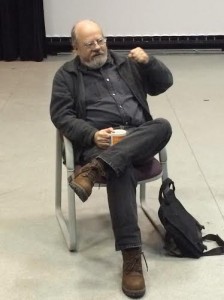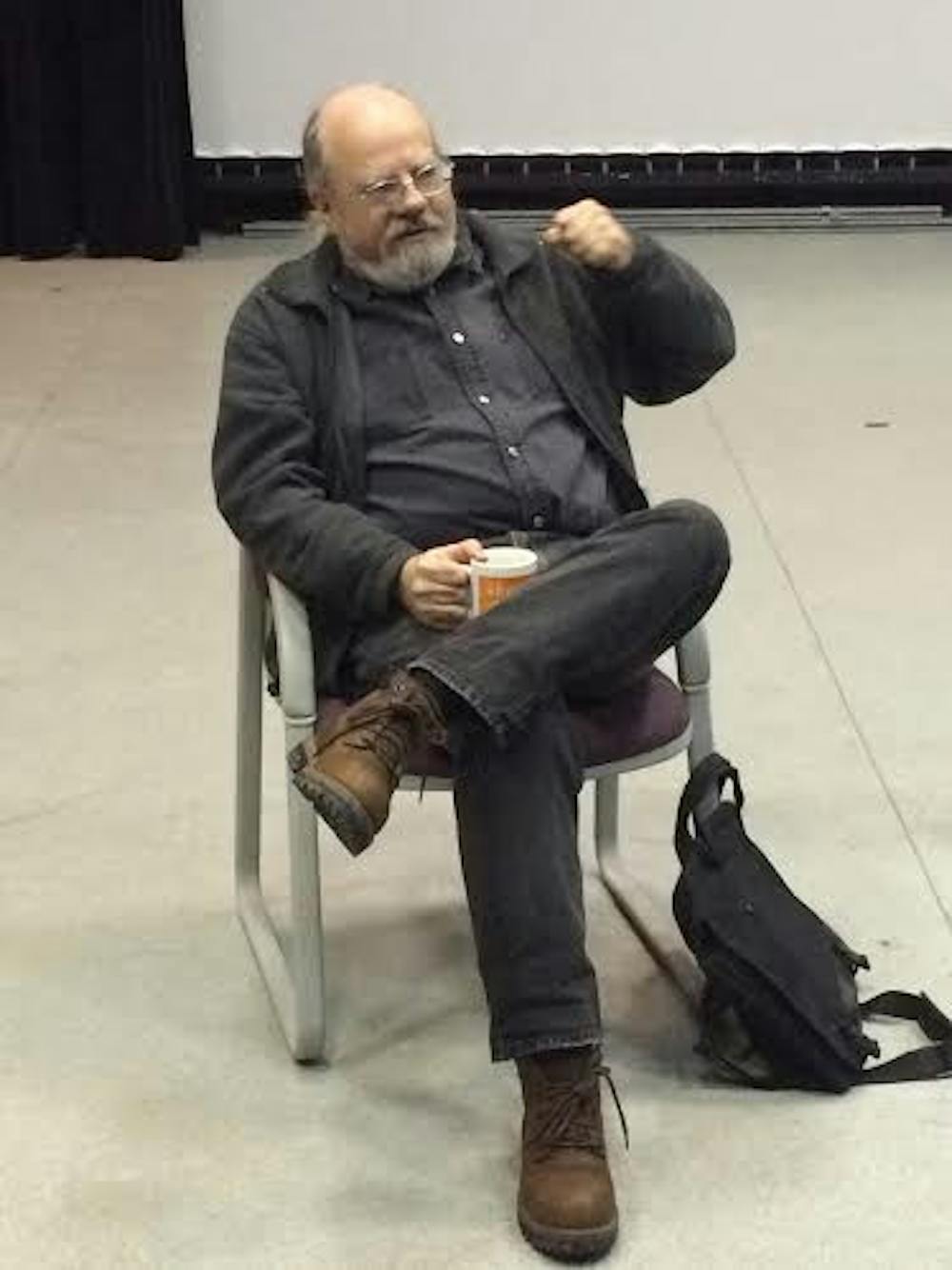Brandon Magown
Correspondent
It is not everyday that a serious car accident can change someone’s life in a positive way. For Terry Byrne, a professor of communications at the College, that’s exactly what happened – his life was shaped by a drunk driving accident.
Byrne, known by his students as just Terry, has worked at the College since 1987. His many years of working in the entertainment industry have not only given him a surplus of knowledge to pass on to his students, but has also given him priceless anecdotes.
“You can tell he not only knows what he is talking about, but that he truly enjoys teaching it,” said Jacqueline Ilkowitz, a senior communications major who has taken five classes with Byrne.
Had it not been for the traumatic car crash, Byrne may have never found his place at the College as a noteworthy professor. It would be a long road to get there, but certainly one Byrne is glad he traveled on.

Born in eastern Kansas in 1950, Byrne spent most of his childhood throughout parts of the west and eventually in Denver, Co.
When it came time to go off to college, Byrne headed back East. After attending several different undergrad schools, he finished at the University of Wisconsin in Milwaukee with a degree in technical theater. He went on to attend Carnegie Mellon University in Pittsburgh, Pa. to obtain his master’s of Fine Arts in production design and lighting.
Byrne scored his first job out of college at Marymount Manhattan College.
“I was the resident designer for the college,” Byrne said. “I designed and lit plays as well as taught one class a semester.”
After a few years, Byrne left to freelance around Manhattan and ended up in corporate theater. Byrne and a production team created set designs and lighting for product launches ranging anywhere from new cars to computers.
“That was one of the more fun jobs that I had,” Byrne said. “We got to travel a lot, (and) we always flew first class and stayed in nice hotels and never paid a penny for it.”
As much fun as the job was, Byrne soon left it for an even more exciting adventure -- a job in Europe.
This new step in his career, however, was one that started years before with the horrible car accident.
One night during his days in graduate school, Byrne and a few friends were out to dinner celebrating their graduation from Carnegie Mellon. On their way home, they were broadsided by a drunk driver, which left Byrne in a coma for three days.
“The accident happened on a Friday night and the next thing I knew I woke up and it was Tuesday,” Byrne said.
Luckily, he and his friends all made it out alive, and years later Byrne received a $9,000 check as part of the settlement from the accident.
“My wife and I decided to go to Europe on that money because we felt like it would be wrong to spend it wisely,” Byrne said jokingly.
One of their stops across Europe included Ireland, a place that had deep significance to Byrne.
In the same year Byrne graduated from Carnegie Mellon, his father passed away. One thing his father left him was a letter from his great aunt which included what she knew about the Irish side of their family, including their genealogy and history. There was no question that Byrne would visit Ireland and track down his ancestors during his trip.
While in Dublin in 1976, Byrne met people at The Abbey, the national theater of Ireland, and asked them, “If I wanted to live in Ireland, how would I go about it?”
He was told he should get a job at the television studio RTE, the national television and radio broadcast company of Ireland. So just like that, he went and had an informal interview with them before coming back to America.
Four years later in 1980 while doing a product launch, Byrne received a phone call from RTE offering him a job. Byrne didn’t hesitate to quit his job and a month later he and his wife were living in Dublin.
Like many of his previous jobs, Byrne did not stay at RTE long. By 1986, he was already back in the States, though he had a variety of interesting experiences along the way.
“I started off by designing sets for news programs, like the evening news or interview shows, but after that I got shifted to what they called the light entertainment department,” Byrne said. “I did a talent show, a weird sort of road show and finally a serial drama, which is really just a soap opera. The show was called ‘Glenroe,’ which was the biggest show in the whole country, everybody watched it.”
The job Byrne enjoyed the most was working for “The Late Late Show,” which was the Irish equivalent of “The Tonight Show.”
“That job was very cool because they had some really top name talent on there like Van Morrison, Robert Plant and Tom Waits,” Byrne said.
Like all good things, there came an end to his time in Europe.
“Things kind of fell apart at RTE and a whole bunch of people left around 1985 and 1986,” Byrne said.
After coming back to America in 1986, Byrne held a temporary teaching job while he searched for something more permanent. That’s when he found the College.
“An opening here came up and so I came out and interviewed for it,” Byrne said. He was offered the job and started in 1987 and has worked for the College ever since.
Over the years Byrne has taught a number of different classes, ranging from hands on production, to classes on film critique. It is the latter in which Byrne has come to really enjoy.
“As I have spent more time here I have gravitated more towards classes about history and theory,” Byrne said. “Those are a lot of fun, because I did not know a lot of film history. I mean I did not grow up in a film culture. The only performing art I was exposed to was theater.”
Having a deep interest and passion for what he teaches makes his classes that much more valuable.
His students describe his classes as very laid-back and an environment that is easy to learn in.
“He is a very relaxed and cool professor and takes the time to get to know all of his students on a personal level,” Ilkowitz said. “He takes the time to learn what all of his students want to accomplish and then helps them reach those goals.”







